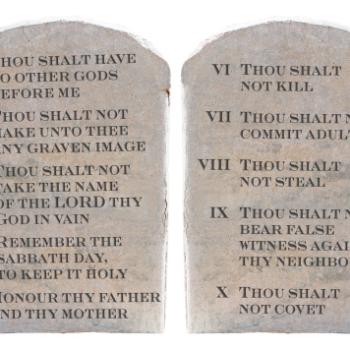As the presidential election settles into its predictably torturous and polemical rhythm, the language of fairness and equality are back in play. Citing the President's call for enacting the so-called Buffett rule, The New York Times is calling for fairness and the elimination of inequity. The editorial got me thinking about the doctrine of fairness and what the Bible has to say about it.
Contemporary students of human and animal behavior describe fairness and reciprocity as pillars of morality. But Scripture doesn't focus on either one. In fact, to the extent that it describes inequity at all, Scripture seems to take it as a given, and there is nothing to suggest that either Israel or the church was ever thought of as an exemplar of a fair and equitable society.
Instead, biblical writers insist on the righteousness of God, justice, and love. The first embraces the second and insists on equal treatment under the law. But righteousness is also more widely about the will of God as expressed in human conduct and interaction. In turn, the demand for justice is required by the fact that we are all indebted to God.
Love, on the other hand, is an unconditional commitment to others that is meant to guide and shape the enactment of God's will. But it, too, is contingent on the prior and unmerited love of God, whose own expression of love is perfect in a way that no act of human act of loving can be. The reason that all three characteristics are tied in this way to the creator lies in the conviction that religious life is not just about the practice of a moral code, but is about living into the will of the One in whom all virtues are perfectly expressed.
This is a very different world from the world of political discourse where fairness and equity are ends in themselves. But the differences do not stop there. Biblical notions of righteousness, justice, and love are not fully expressed in economic terms alone, they are also expressed in relational categories. Modern proposals for fairness and equity take the shape of legislative mandates. In religious life righteousness, justice, and love are expressed voluntarily, individually, and corporately in response to the love of God.
For that reason, even if equity and fairness could be defined and achieved by the rule of law, the results would be far less than adequate from a biblical point of view. It is almost as if the writers of the Old and New Testament care less about things being fair or equal, and more about the way in which we respond to inequity.
And this is where our politicians will never serve us well spiritually:
One, there is no program that they can institute for fostering equity that will relieve us of our responsibility to care "for the least of these." The more deeply we identify our God-given responsibility with legislatively mandated solutions, the more we drift from that responsibility. But it will not go away and it cannot be delegated to the government.
Two, no politician can deliver on the promise of economic equality or the equality of outcome. That would require not just taxes, but social and economic stasis, a capping of incomes across the board (regardless of training, education, and expertise), and work without incentives apart from the common good.
Three, the problem with exercising that kind of control is that it points to a hundred and one other inequities that would still persist:
- Why should any one individual or group of individuals wield that kind of power over everyone else? Isn't that simply another kind of inequity?
- If we did have a national poll to determine how wealth was distributed, there would inevitably be groups that asserted collective influence on the process, and why should those inequities exist?
- In a political world where entitlements and bureaucratic overhead are ubiquitous, how do we guarantee that the path from the hand of one citizen would lead unerringly to the hand of another?
- And how do we control for the thousands of smaller, but no less important differences between human beings that would sabotage or magnify our economic efforts to insure fairness? Genetic inheritance, illness, age, injury, natural disasters, crime, spending patterns, intellect, friendships, associations, knowledge, lifelong habits, disposition, sensibilities—all of these factors and others combine randomly and in complex ways to magnify the well being of some and undermine the well being of others, regardless of how much money each of us possesses. And, to complicate matters further, in some cases apparent disadvantages become the crucible for a life of singular achievement.





